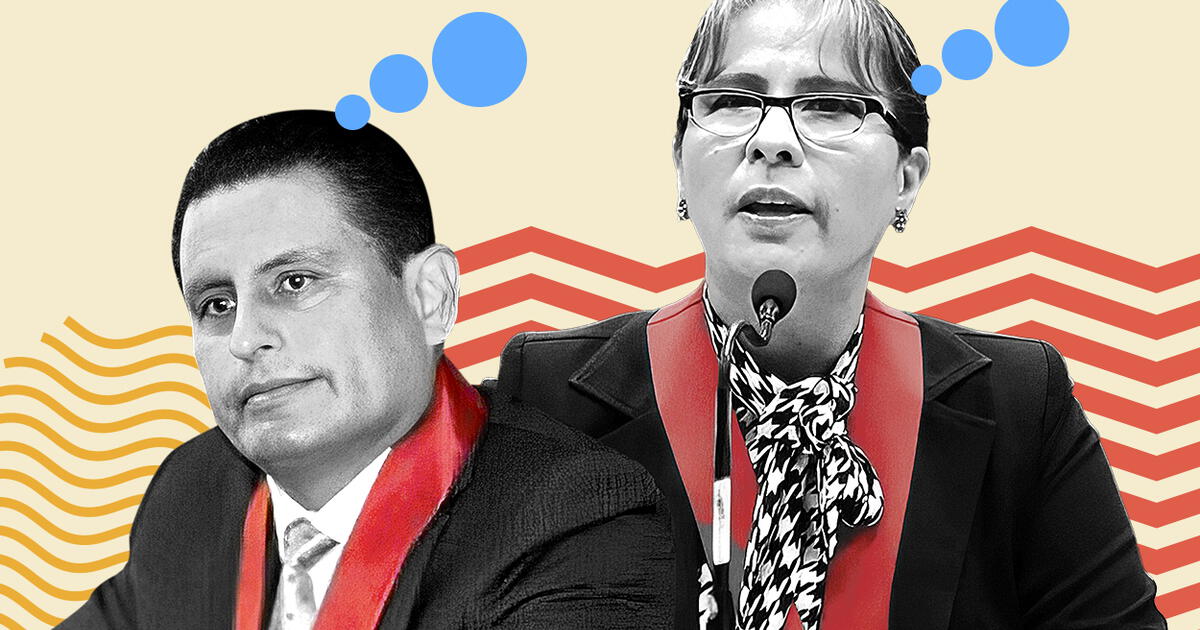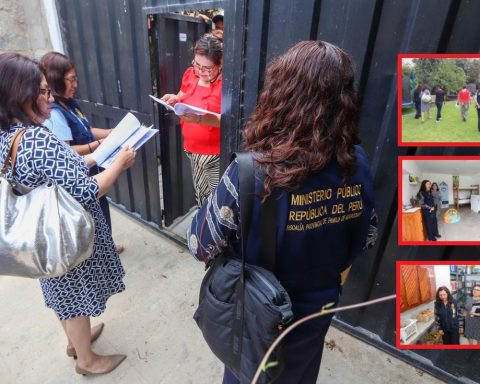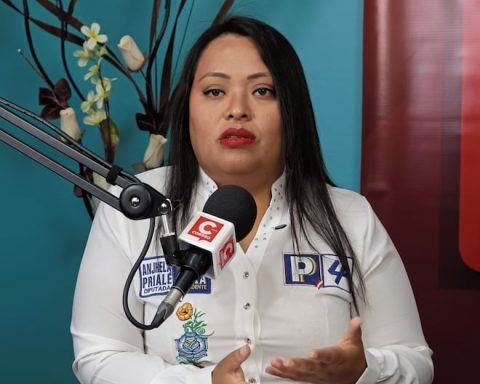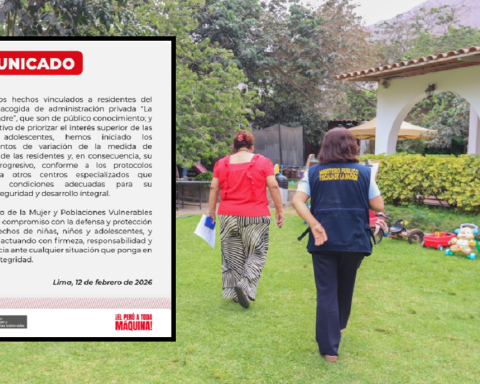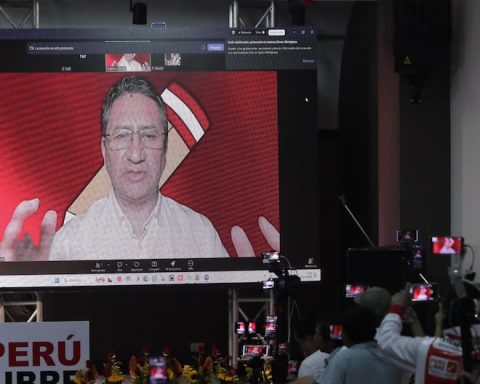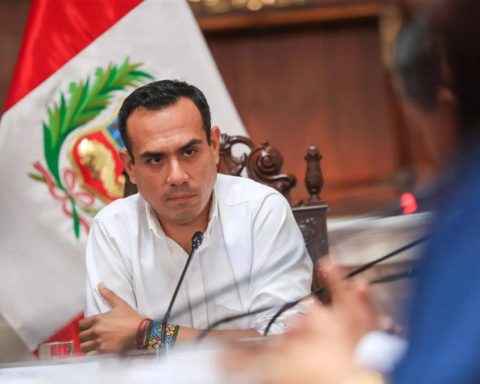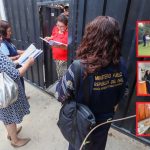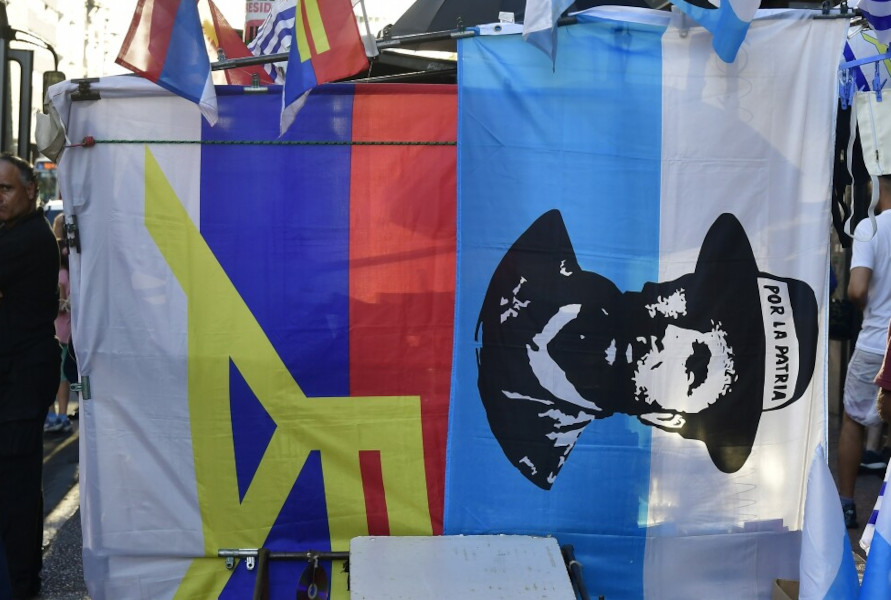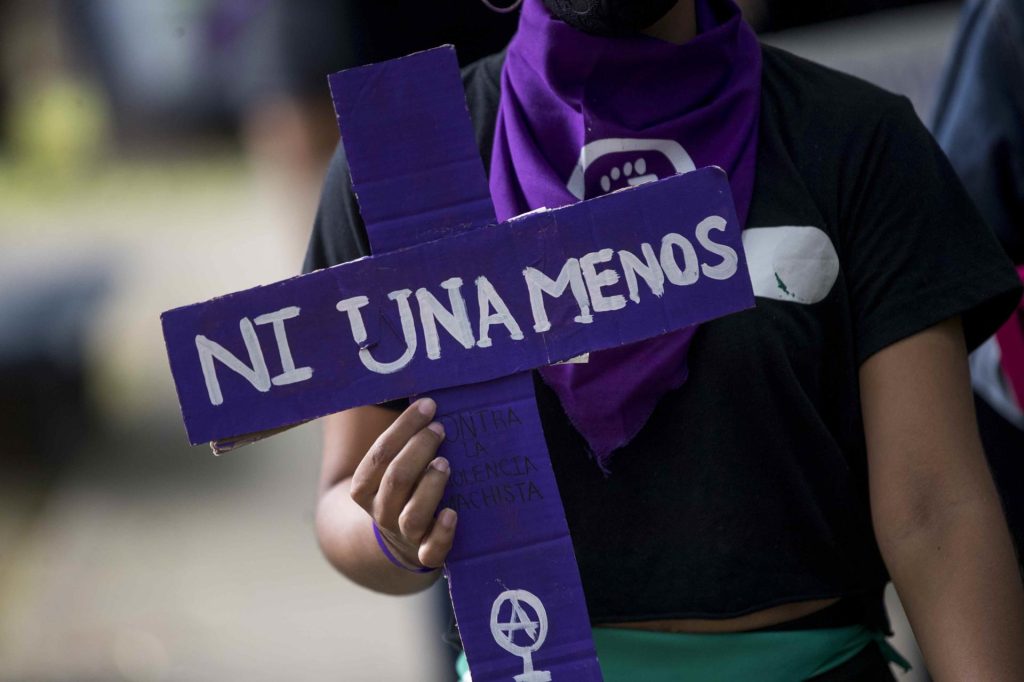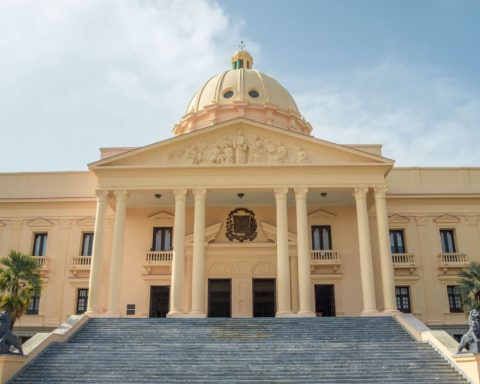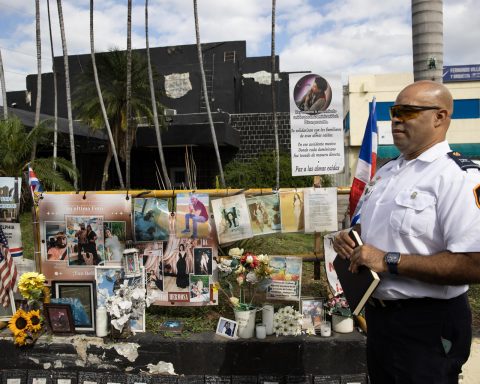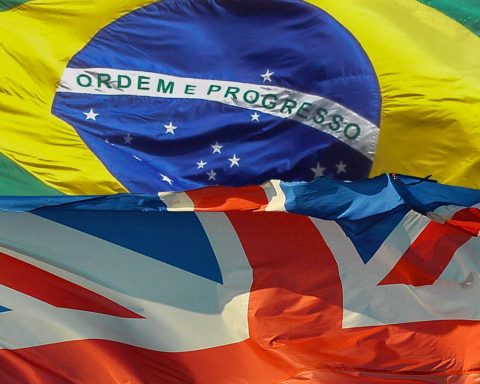The titular senior judges Miluska Cano López, Andres Tapia Gonzales and Roberto Vilchez Dávila They presented their candidacies for the presidency of the Superior Court of Lima, for the period January 2025 to December 2026.
Whoever is elected will replace the suspended president of the Superior Court of Lima, judge María Vidal la Rosa Sánchezinvolved in the Chibolín case.
The election will be carried out by the Plenary Chamber of the Superior Court of Lima, made up of 99 senior judges. The Plenary Chamber, under the presidency of the senior senior judge, Ricardo Vinatea Medina will meet today to hear the work plans of the three candidates. 50 votes are required to win in the first round.
In the event that none of the candidates receives half plus one of the votes of the participants in the Plenary Chamber, a second round will immediately be held between the two most voted.
The election is significant for a Superior Court hit by the Chibolín case. One of the questions raised against Vidal La Rosa is having received alleged financing to entertain the judges who gave him their vote to preside over the Court.
Andrés Hurtado “Chibolín”
However, by then she already had ascendancy among the magistrates, so much so that, on two previous occasions, she had been elected president of the Decentralized Office of the Superior Court of Lima.
Media cases
Andrés Tapia and Roberto Vilchez make up the First and Second Constitutional Chambers of Lima. Until the end of last October, Miluska Cano was a member of the Fourth Criminal Liquidation Chamber of the National Specialized Criminal Court. All three are career magistrates and have resolved emblematic and high-profile cases.
Andrés Tapia was one of the two judges of the First Constitutional Chamber who, by majority, issued the precautionary measure and the Amparo ruling against Congress that allowed the reinstatement of counselors Inés Tello de Ñecco and Aldo Vásquez in the National Board of Justice. In a unanimous decision, he signed the precautionary measure that reinstated prosecutor Rafael Vela in the coordination of the Lava Jato Special Team.
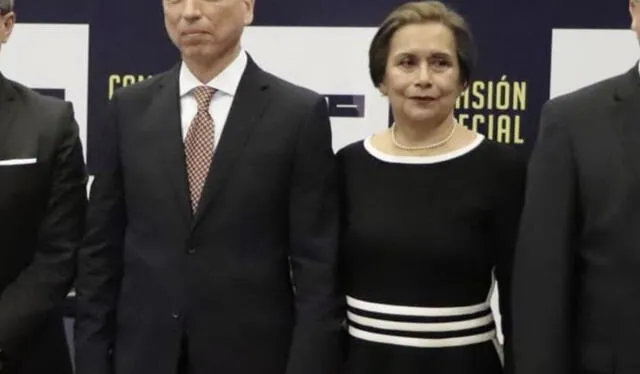
Andrés Tapia presides over the Constitutional Chamber that reinstated Inés Tello and Aldo Vásquez in the JNJ
Before, cast a minority vote in favor of processing a habeas corpus claim against the detention of former president Pedro Castillo. He also voted in the minority in the Amparo ruling that annulled the investigation by the Congressional Megacommission against the late former president Alan García, in the case of the ‘narco-pardons’.
Roberto Vílchez, with a profile far from the media, voted unanimously in favor of the validity of the sentence against Magaly Medina for defamation of Luis Cáceres. He also signed the Amparo ruling that ruled against the lawsuit of the National Fisheries Society (SNP), which sought to reverse the ban on industrial fishing in the Paracas National Reserve.
Miliuska Cano López, despite her change of location, continues to lead the trial of the Colina group for the Pativilca massacre. In February he handed down an early sentence against Vladimiro Monteisnos to 19 years and 8 months in prison for homicide. Applying the diffuse control of the Constitution, he has spoken out against applying a law of Congress that grants impunity to human rights violators..
Work plans
Their work plans coincide in the need to create more jurisdictional bodies to decongest the procedural burden, seek to reduce the rental of jurisdictional headquarters premises, which consume a good part of the budget, transparency and the fight against corruption, although it must be said that none of them mention the song Vidal la Rosa and ‘Chibolin’.
Chief Judge Andrés Tapia
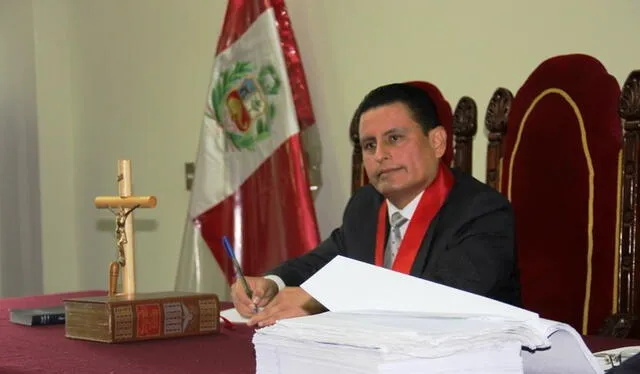
Chief Judge Andrés Tapia
“It is evident that the citizen image of our Superior Court of Justice has gradually deteriorated, requiring urgent improvements at different levels. We need not only better administrative management but a refoundation and profound moral transformation that implies, 200 years after its creation, a struggle frontal and ruthless against corruption and a strong defense of that institutional value that is independence,” says Superior Judge Andrés Tapia, in the presentation of his work plan.
Among its main proposals are:
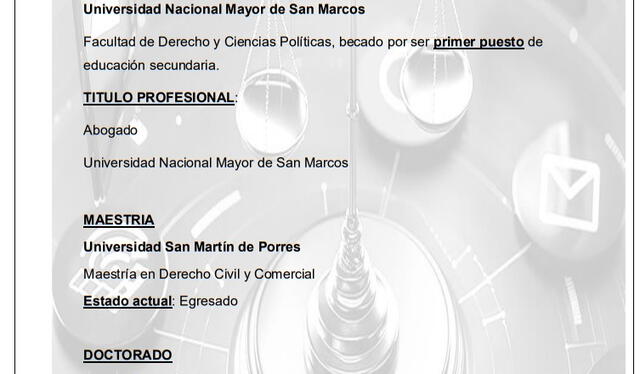
Resume of Judge Andrés Tapia
- A policy of open and timely attention to all areas of administration. The Presidency will have a policy of real open doors, indicating precise hours for daily attention to all judges and people who require it.
- The creation of a computer platform that allows judges to know the professional and work history of each server.
- Clean and transparent work in internal purchases to acquire goods or services. For this purpose, it is proposed to report monthly with figures, variables and indicators to all members of the Court of Justice of Lima the progress of our management and basically, the acquisition of goods and services.
- The appointment of provisional and supernumerary judges, scrupulously respecting the current regulations and the order of priority established by it.
- The creation of more jurisdictional bodies since it is evident that the limit load that each of them can support has been widely exceeded, with only 463 judges under the Judicial Career regime.
- A firm and relentless fight against corruption. My management will strengthen, in a coordinated manner, the tools of the ODANC so that not only expired procedural deadlines but fundamentally acts of corruption are pursued.
Senior Judge Miluska Cano
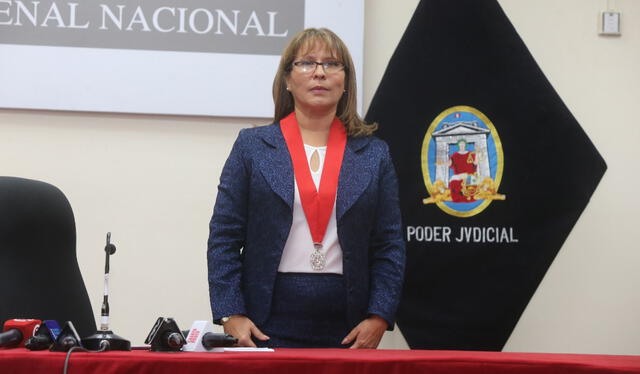
Senior Judge Miluska Cano
“We are currently in a difficult social and political situation in the country, to which the Judiciary is no stranger. We are the object of multiple attacks for our judicial resolutions or decisions, which, although it is part of the consequences of our work , makes it necessary to improve our communication with citizens, as well as the interrelation and work with other public institutions and other powers of the State,” says Judge Miluska Cano, in the presentation of her 2025-2026 work plan.
Among the objectives it proposes, the following stand out:
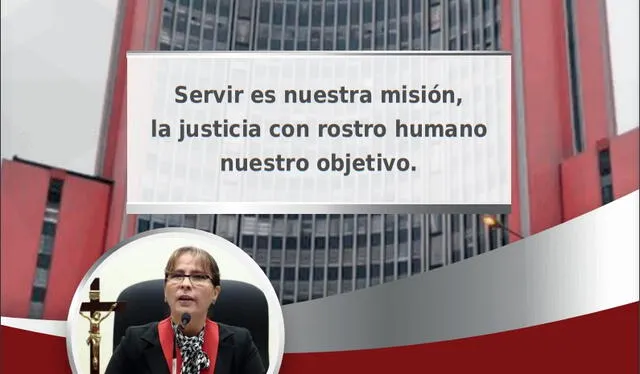
Work Plan of Judge Miluska Cano
- The execution of the project “Improvement of Justice Administration Services in the Criminal Specialty” at the San Jorge Headquarters will be promoted, which will house 205 offices, 83 courtrooms, administrative and jurisdictional areas, common areas and parking lots.
- Permanent and free training will be provided to judges and workers, through diploma courses, internships, specialization courses and exchanges, master’s degrees and postgraduate degrees.
- Design and implement an internal and external communication plan in charge of the Court’s Presa and Image area, in coordination with the competent jurisdictional and administrative areas, in order to improve communication between workers, magistrates, users and the community.
- We will defend judicial independence with concrete actions as soon as a threat arises. No magistrate of the Court of Lima should be sanctioned for resolving a case based on his jurisdictional criteria, as long as his criteria are based on the Political Constitution of Peru and the current legal provisions, the general principles of law and international conventions. mandatory compliance.
- The corresponding studies will be carried out to request the creation of two criminal specialty chambers, an administrative litigation chamber, a family specialty chamber and a constitutional chamber, in order to attend to judicial processes more quickly.
- Strengthen the Court’s Integrity Office in order to guarantee ethical performance and compliance with the laws, as well as propose and approve short, medium and long-term policies aimed at preventing and combating corruption in the jurisdiction.
Senior Judge Roberto Vilchez
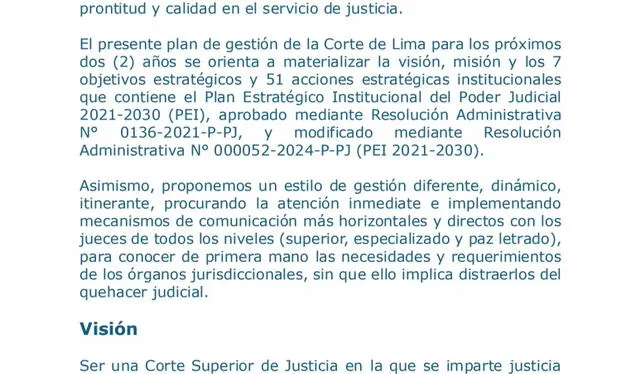
Work plan of Superior Judge Roberto Vilchez
“We propose a different management style, dynamic, itinerant, seeking immediate attention and implementing more horizontal and direct communication mechanisms with judges at all levels (higher, specialized and attorney peace), to know first-hand the needs and requirements of the jurisdictional bodies, without this implying distracting them from judicial work,” says Superior Judge Roberto Vilchez, in his work plan.
Among its proposals we highlight:
- Implementation of a system for receiving complaints about corruption, both in the jurisdictional and administrative spheres, accessible and confidential, which guarantees the protection of complainants, in coordination with the National Control Authority, the Comptroller General of the Republic and the Ministry Public.
- Improvement of the Integrated Judicial Statistical System for the issuance and automation of statistical reports on the entry of files, procedural load, jurisdictional production and procedural acts (nullity and precautionary measures), in order to free the various jurisdictional bodies from the monthly referral of this information.
- Implementation of Public Investment Projects for the Demolition of the Alimar headquarters and the construction of new judicial headquarters in Alimar and in the former San Jorge Prison.
- Restructuring and strengthening of the Human Resources Coordination Office, with the aim of redesigning its actions and procedures to anticipate the personnel needs and requirements of all jurisdictional bodies.
- Formalization of the Institutional Defense Commission, made up of judges at all levels (legal, specialized and superior), appointed by the Board of Judges and Plenary Chamber, as appropriate, for the defense of judicial autonomy and independence, as well as the other rights of judges recognized by the Constitution and the Organic Law of the Judiciary.
